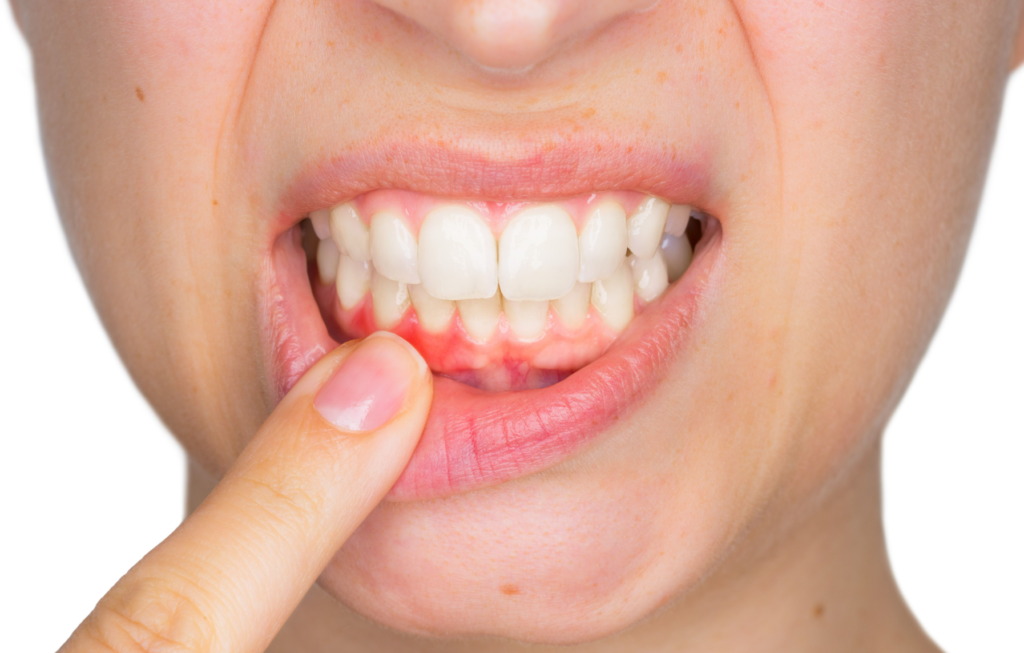
Please Contact Us


Gum disease occurs when the tissue that surrounds and supports the teeth becomes infected.
Gingivitis is a mild form of gum disease. It occurs when the gums become red and swollen. The gums may also bleed easily when they are brushed and it can cause bad breath. Gingivitis can be reversed by good mouth care.
If gingivitis is not treated, it may cause a more severe form of gum disease called periodontitis. Periodontitis may cause the area of the gum closest to the tooth to become weak. Spaces may form between the tooth and the gum, and these may trap germs, leading to even more swelling. Over time, the bone supporting the teeth can be lost, causing the teeth to become loose and possibly fall out.
Let us know your problem, make an appointment and receive the best advice
from specialists in the field.